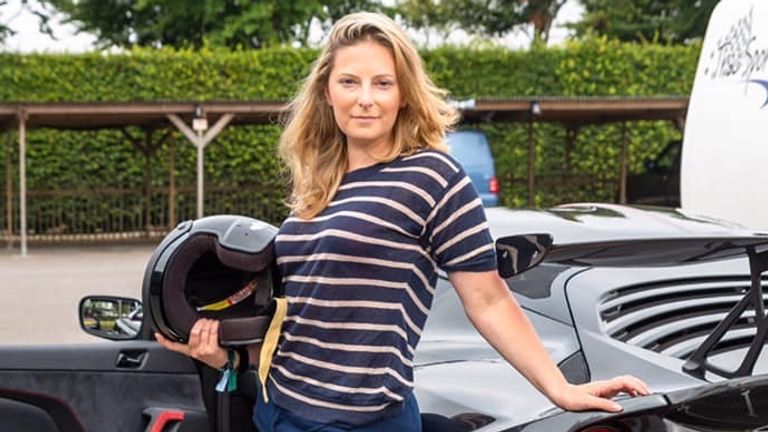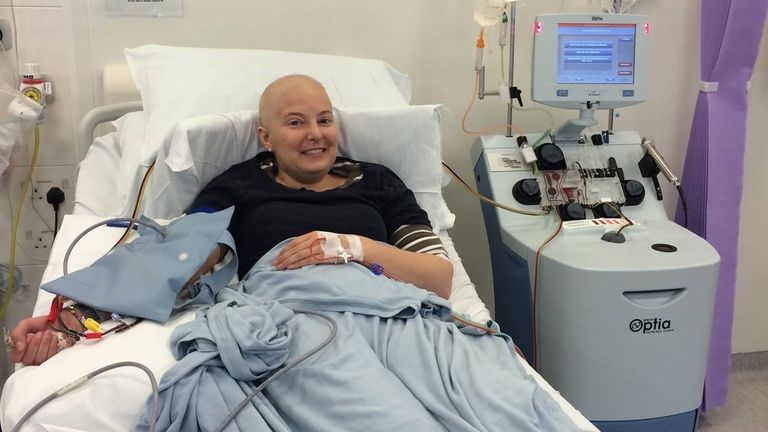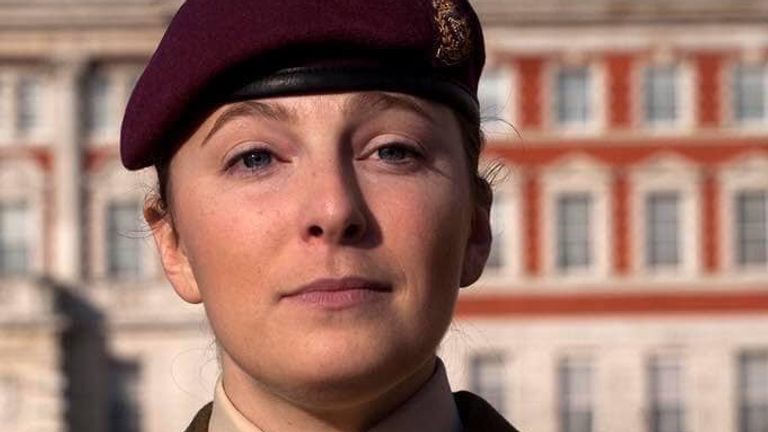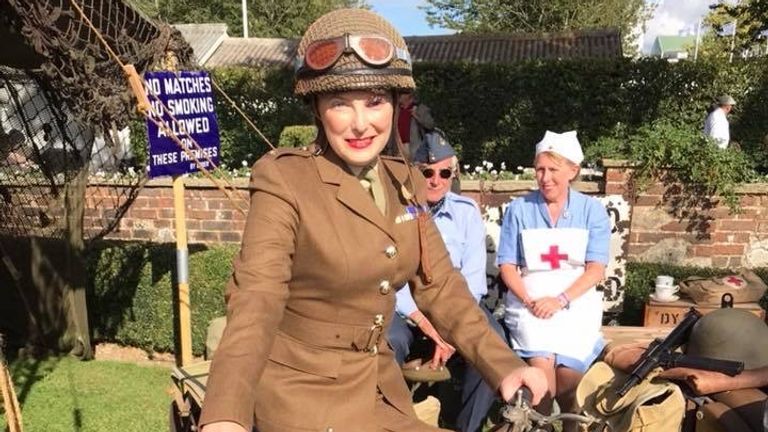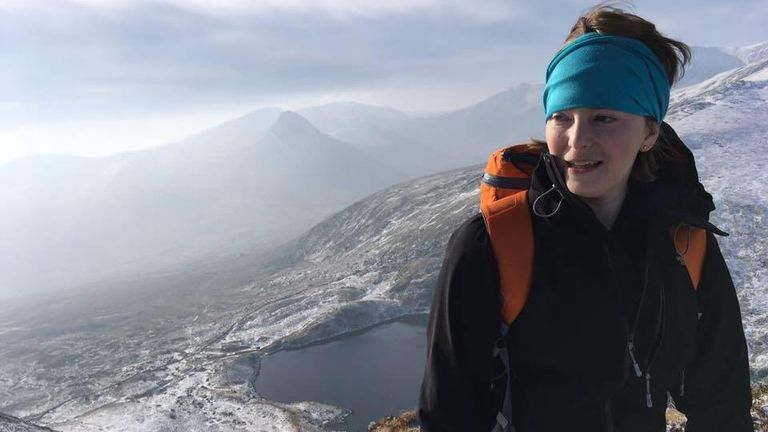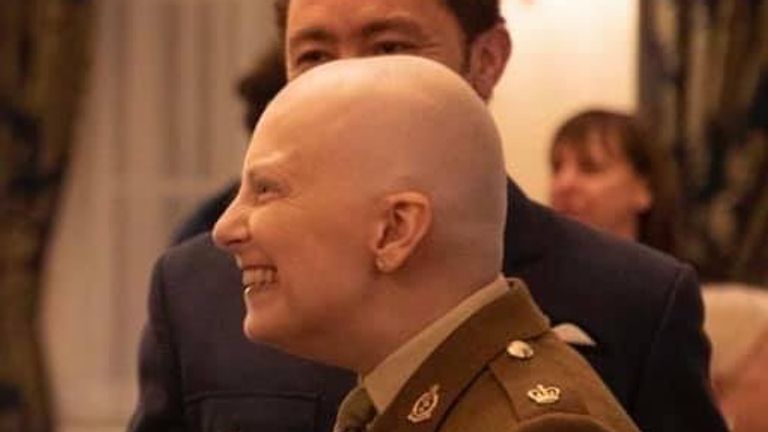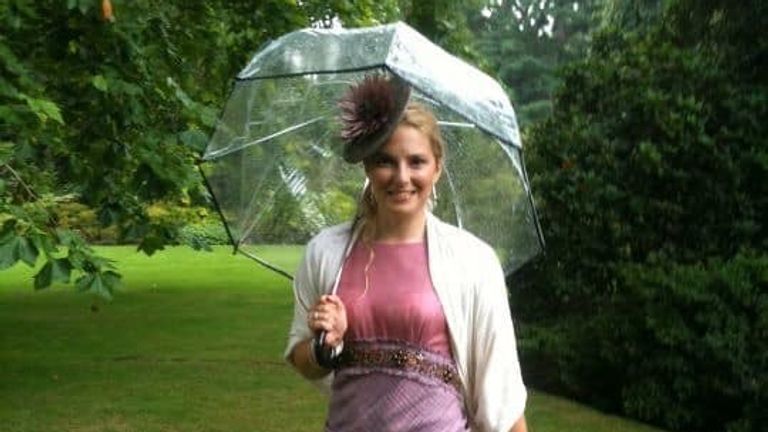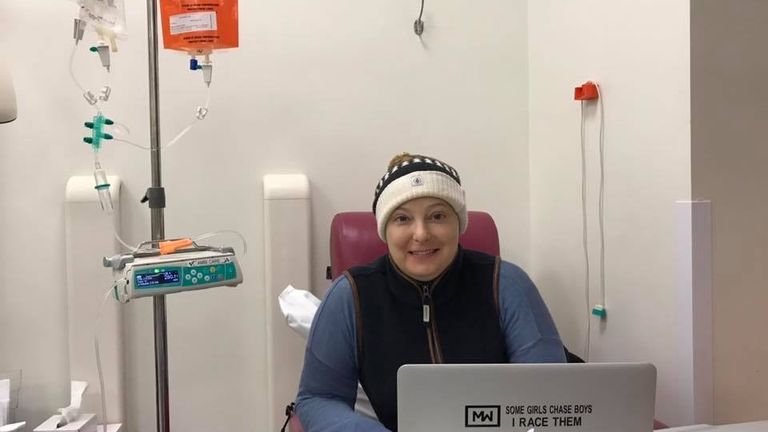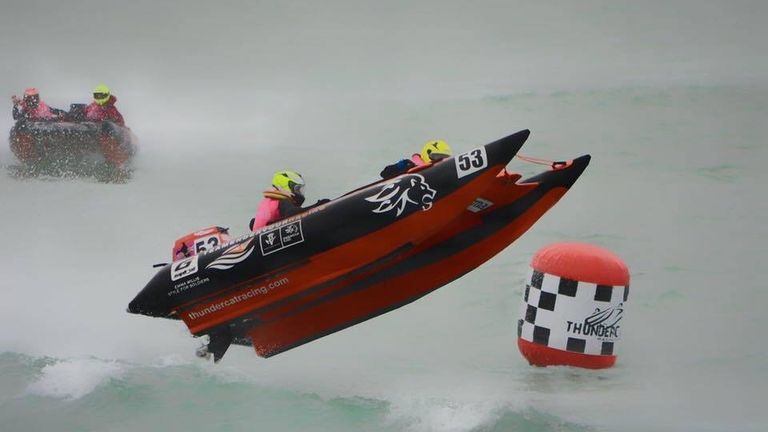Major Mandy Islam: Funeral at Sandhurst for ‘inspirational’ woman who changed military policy on illness
The leg pain during gym workouts was more of an irritation than a cause for alarm for the young, fit, female army officer – a veteran of multiple tours to Iraq and Afghanistan.
It was only after months of tolerating the discomfort that Major Mandy Islam, then 34, decided to seek medical advice.
After several consultations, not only did she discover she had suffered a hairline fracture to her leg, she was also diagnosed with a rare and terminal blood cancer.
Doctors gave her a life expectancy of between two and eight years.
Instead of surrendering to the news, the decorated officer turned personal tragedy into another part of her action-packed life, creating an online diary to educate others; setting up a support network for ill and disabled servicemen and women; and working with the Ministry of Defence to improve the employment rights for military personnel with critical illness.
On 30 November – more than four years after her diagnosis – Major Islam, 39, passed away in hospital after a sudden deterioration of her condition.
On Monday, family, friends and colleagues paid tribute to this “inspirational” woman at a funeral service at the Royal Military Academy Sandhurst, where she had trained to become an officer more than a decade earlier.
“To the very end of her days, Mandy Islam was a fighter, a leader and a friend,” said Colonel Seb Pollington, her former commander and mentor.
“The way she faced adversity in her life – most of it in the full glare of others – has inspired a generation; it is a life which has brought about significant change for the defence community; one that she advanced, in her own way, and she leaves a remarkable legacy.”
I met Major Islam early last year.
She was still working full-time despite enduring – with a smile – fortnightly chemotherapy at University College London Hospitals.
“If this type of cancer is going to happen to someone, then I am not a bad person for it to happen to,” she said in an interview at the time.
“I am young, healthy – apart from the cancer – and determined to roll with the punches. And to make good out of whatever happens in life. Give me lemons I’ll give you lemonade.”
But Major Islam admitted the illness had been her toughest battle in a career that took her to the badlands of southern Iraq’s al Amara province in 2003 as a member of the Intelligence Corps and to southern Afghanistan where she worked as a medic.
Her army training gave her the resilience required to cope with chemotherapy and radiotherapy that made the hair on her head, her eyebrows and her eyelashes fall out.
“You do start to look like Casper the friendly ghost,” she joked.
The soldier also suffered brain damage, temporarily losing the ability to read, see and even speak, as well as incontinence and early menopause.
She described the dark spells she went through as her body struggled to cope with the pain of a treatment that was making her sick to try and make her better, while her mind was affected by the drugs.
“The isolation with cancer is massive. You can be the most supported person in the world but it is only you on that journey,” she said.
“It is like the worse log race in the world, you’re carrying this ridiculously heavy burden, through thick mud, your arms aching, your body is aching, you’re screaming for someone else to take the log off you but you have got to keep on going and you don’t even know where the finish line is.”
Born into a military family, Major Islam joined the Corps of Royal Electrical and Mechanical Engineers at 16.
She switched to the Intelligence Corps a couple of years later, where she was identified as having leadership qualities.
Aged 26, she went to Sandhurst to become an officer.
She arrived at the military academy with three operational medals already on her uniform, setting her out from the crowd of largely university graduates fresh from college.
During her time in training she forged deep bonds of friendship with other women on the course. They stuck by their friend during her illness and accompanied her coffin on her final journey at the Memorial Chapel at Sandhurst.
Major Steph Harris, 35, remembered their first encounter.
“The blond bombshell that was Mandy Islam came round the corner in her Porsche with the ironing board hanging out the window and came out with these long blonde locks throwing around and that was the impact that she made on 23 platoon,” she said.
“Mandy was larger than life in everything she did before cancer, during cancer and all the way to the end.
“She was always positive, always up for anything, had a real love for sports cars and speed and adrenaline and got that any which way she could.”
As a junior officer, she commissioned into the Royal Military Police but soon switched to the Royal Medical Corps at a time when medics were frequently on the frontline alongside combat troops on dangerous operations in Afghanistan, dealing with serious casualties.
It was while she was posted at the army’s headquarters in Andover in 2015 that Major Islam was diagnosed with multiple myeloma.
She recalled speaking to the professor who broke the news.
“I said to the professor: Am I going to die? She said yes. Then she gave me my schedule: two years at worst and seven to eight years at best.
“I said: OK, fine. And toddled off.”
Major Islam explained: “Learning to accept things is a really powerful tool in enabling you to have the capacity to deal with issues.
“If you are unable to digest and accept change, however difficult that might be, you don’t have the capacity to deal with the problems in front of you… I don’t think about death. I am not bothered about it. What will be will be.
“There is nothing I can do apart from do my medical schedule, live as healthy a life as I can and be good to people and carry on with doing what I was doing before.”
She set up online social media site Cancer Warrior Diaries to raise awareness about the need to be alert for bumps and lumps on your “balls, breasts and other bits” and to track her own journey.
The officer also made sure she kept on enjoying life, developing a passion for powerboat racing as well as spending time with her beloved dog Freddie.
Known for always putting others before herself, one of Major Islam’s most significant achievements took place even as she dealt with her own terminal decline.
The officer succeeded in pushing forward new policy within the Ministry of Defence that means military personnel with “significant illness” now have more opportunities to stay and continue to serve, rather than be medically discharged.
Colonel Pollington said her efforts have “radically changed a culture”.
Major Islam also set up the Chronic Conditions And Disability In Defence Network – a group of volunteers who offer support and advice to all soldiers, sailors, airmen, Royal Marines and civilians in defence who suffer life-changing or life-limiting conditions.
In January, she was awarded an MBE in recognition of her work.
In her own words to me last year, Major Islam said: “Cancer is the hardest thing I have ever done. It is harder than any operational tour.
“It is the most all-encompassing, demanding, soul destroying thing in parts that I have ever done.
“But you have still got to find the good in that and you have still got to pick yourself up and you have still got to keep on going.
“I have a duty to queen and country.”
Source: Read Full Article
